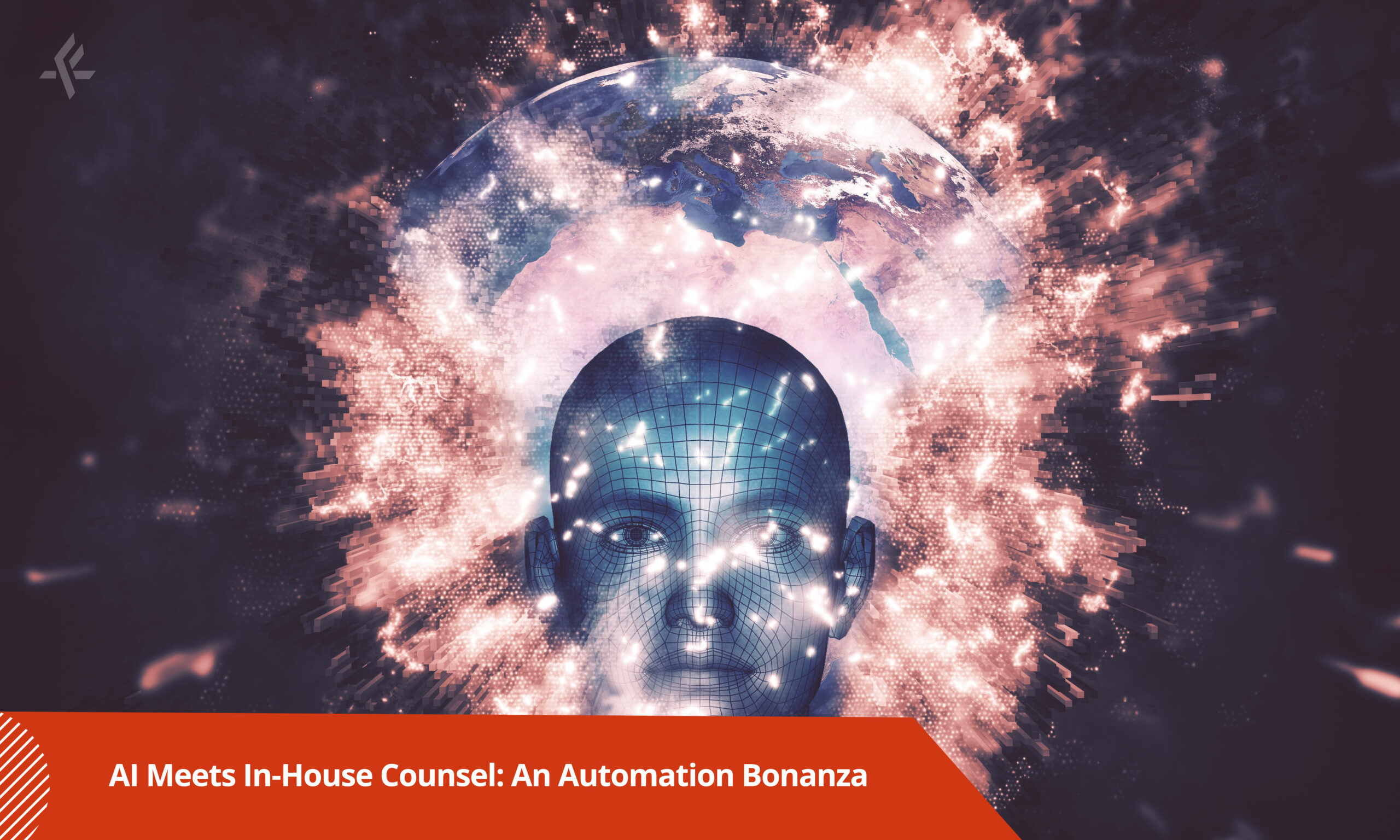April 20th, 2022
AI Meets In-House Counsel: An Automation Bonanza

As a result, AI has yielded a steady stream of new legal tools that are automating virtually every aspect of the law, as well as producing powerful new ways to analyze and manipulate legal documents that were simply unimaginable prior to its advent.
While scores of AI tools are already available to automate the writing of most contracts, others are even more sophisticated.
The Use of AI in Law
Some tools enable law firms to apply the power of AI to hardcopy documents. Others help attorneys strengthen both oral and written arguments. And still, others enable everyone working in law to perform searches by concept rather than keyword.
The promising news for attorneys who have no programming skills is there are a number of new solutions that enable them to create their own custom AI-powered legal apps, no coding necessary.
Moreover, with so much AI research now focused on language, in-house counsel will also have an easy time finding AI experts eager to help them develop and implement a custom project.
Examples of AI Implementation in Law
Below is a sampling of what’s going on with AI and the law right now. All are solid jumping-off points for something that might be good for you off-the-shelf. Or they could serve as a catalyst that triggers something even more sophisticated that can be handled with a custom project.
No matter which way you go, your best bet is to take along a seasoned AI consultant as you navigate this fusion of AI and law. This will ensure the AI you choose, or the AI you dream of, is a perfect fit for your needs.
Here’s a taste of the possibilities!
- Contract Auto-Generators:
Scores of AI packages are currently available that auto-generate the sales agreements, employment contacts, non-disclosure agreements, data processing agreements and similar contracts that occupy the lion’s share of many an in-house counsel’s days. Some also enable legal departments to convert their standard proprietary agreements into reusable templates, ensuring the company’s thinking is embedded in all future auto-generated documents.

- AI Analysis of Hard Copy Contracts:
A number of AI tools are available that can import hard copy or PDF contracts using optical character recognition. Subsequently, AI is turned loose to auto-analyze the electronic versions of those docs for insights, confirmations, vulnerabilities and more.
Your company’s old paper-based contracts, for example, may include forgotten agreements, unnecessary auto-renewals, unusual liabilities, outdated privacy agreements and the like; all of which can be automatically exposed through this AI analysis.
Most of these AI solutions come with searches pre-programmed to ferret-out common problems with older contracts. And many can also be customized to search for insights specific to your company’s needs.

- Auto-Argument Builders:
With these AI tools, attorneys can upload any brief, memorandum or other documents that sports-legal language and be presented with a list of relevant cases not already cited in the document.
Such tools are perfect for an attorney looking for help to build an argument. And they can also be used to double-check all relevant cases that have been cited in an already completed doc.
These solutions are also perfect for uploading an opposing counsel’s document to uncover relevant cases that can be used to undermine the opposing attorney’s arguments in that document.
- AI Second Opinions:
As a legal document makes its rounds through the legal department, AI tools can also be brought in to analyze the relative strength of that doc’s arguments.
AI, for example, has the ability to analyze each citation used in a legal document and issue its own take on how well the citation supports the argument or statement being made. Plus, the same analysis can also be used on an opposing counsel’s document; potentially uncovering weak arguments or clumsily chosen citations.

- Document Search by Concept – Not Keyword:
One of the great promises of next-generation search engines is search by concept, rather than keywords that are already available for legal documents. Simply load your documents, or documents from opposing counsel, into these tools and you’ll be freed from keyword search forever. In practice, search-by-concept is great for pulling up the same concept in all documents, even if they’re phrased differently.
Moreover, attorneys are also using these tools to quickly find the testimony they need, without being required to know the exact words.
Essentially, any search you’re looking to run in your docs will be easier, faster and more comprehensive thanks to AI concept-matching search.
- No-Code Document Automation:
Another one of the great liberties AI brings to in-house counsel, no-code document automation ideally enables any attorney to create a template for the auto-generation of any legal document, without any prior experience in computer programming.
Instead of turning to the company IT department any time AI automation is needed, these AI programs enable an attorney to jump in and create an AI template that can be used to auto-generate company-specific legal documents.